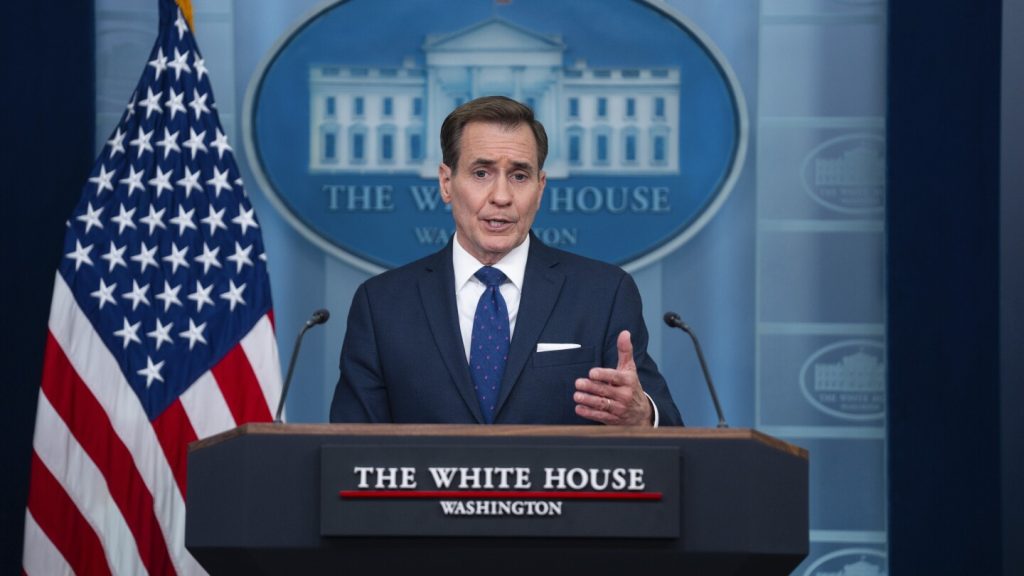The White House revealed that Russia has been surpassing U.N. Security Council limits by shipping refined petroleum to North Korea. Despite a global cap set by the United Nations, Russia shipped over 165,000 barrels of petroleum to North Korea in March alone, raising concerns about sustained shipments due to the close proximity of Russian and North Korean ports. This announcement comes after a U.N. panel monitoring sanctions against North Korea was disbanded, with Russia blocking its renewal. The Biden administration declassified intelligence showing Russia’s increased reliance on North Korea and Iran for arms during the war in Ukraine.
The White House emphasized Russia’s unprecedented actions as a member of the permanent five Security Council members, breaking the Council’s long-standing effort to support denuclearization and nonproliferation. In response, the U.S. plans to impose sanctions on individuals involved in facilitating arms and petroleum transfers between Russia and North Korea. Earlier this year, the White House revealed instances of North Korea sending ballistic missiles to Russia, as well as delivering military equipment and munitions. U.S. intelligence indicates that North Korea demands advanced technologies such as aircraft and ballistic missile production equipment from Russia in exchange for arms support.
Russia’s shift away from U.N. monitoring reflects its deteriorating relationship with the U.S. and Western allies since the conflict in Ukraine began. The growing tension has hindered consensus on various issues, including those with long-standing agreements. The U.S. intends to collaborate with countries like Australia, the European Union, Japan, New Zealand, South Korea, and Britain to impose additional sanctions related to the refined petroleum shipments. The situation underscores the complex geopolitical dynamics surrounding North Korea’s nuclear program and its interactions with other nations, particularly in light of global efforts to address proliferation and conflict.
The revelation of Russia’s violations of U.N. sanctions against North Korea raises concerns about the effectiveness of international efforts to curb Pyongyang’s nuclear ambitions. The discovery of ongoing petroleum shipments from Russia to North Korea, beyond the established limits, highlights the challenges in enforcing sanctions and preventing illicit trade that could fuel nuclear proliferation. The Biden administration’s response, including declassifying intelligence and planning sanctions on those involved in facilitating transfers, demonstrates a commitment to upholding U.N. resolutions despite obstacles posed by Russia’s actions. The situation also underscores the broader implications of the conflict in Ukraine on global security dynamics and the interplay between different strategic interests in the region.
As tensions escalate between Russia, the U.S., and its allies, the situation in North Korea adds another layer of complexity to the geopolitical landscape. The fallout from Russia’s defiance of U.N. sanctions not only affects efforts to contain North Korea’s nuclear program but also exacerbates existing conflicts and rivalries in the region. The coordinated approach by the U.S. and its partners in imposing sanctions on individuals linked to arms and petroleum transfers reflects a united front against destabilizing activities by rogue states. Moving forward, the international community faces the challenge of balancing deterrence measures with diplomatic efforts to address the root causes of proliferation and conflict in North Korea and beyond.


